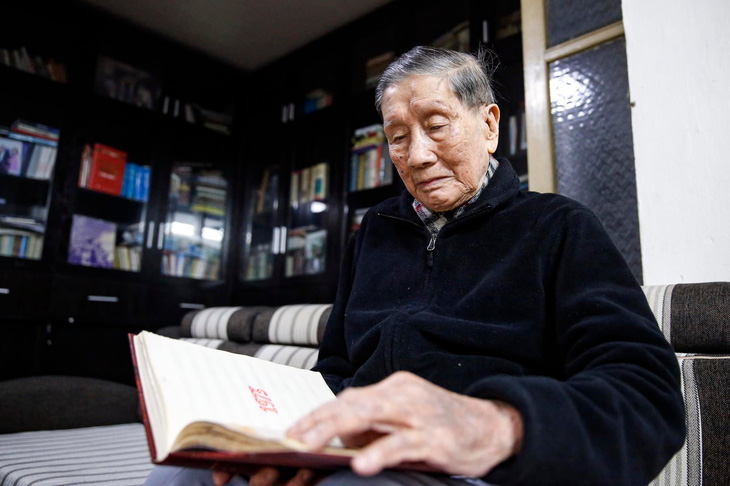
Musician Pham Tuyen - Photo: GĐCC
Below the article: Musician Pham Tuyen's family is upset and disagrees with the derivative version of "The Little Elephant in Ban Don" Posted on Tuoi Tre Online on April 9, many readers left comments on this issue.
In it, reader ngot****@gmail.com wrote: "Why not name it Improvisation of the Little Elephant of Ban Don? That would be fine. Musician Tran Tien also has a song called Improvisation of Ly Qua Cau inspired by Ly Qua Cau ."
However, just adding the word "improvisation" or "spontaneous" in the title and wanting to adapt someone else's song to your liking is also a matter worth discussing.
Not to mention the example that this reader cited above is also a copyright story that needs to be discussed. Because, Improvisation on Ly Qua Cau was written by musician Tran Tien based on the inspiration of the poem "Dieu Ly Qua Cau" by poet Be Kien Quoc, not Ly Qua Cau .
In the essay "Song cuu nghinh xuan" published in Tuoi Tre newspaper on January 27, 2019, the musician spoke up to admit his mistake, affirming the role of co-author of poet Be Kien Quoc in this song.
Do not distort the Baby Elephant in Ban Don
Under the article, reader Le Minh commented: "Currently, many songs are sung with wrong lyrics, wrong rhythm, and even wrong title. If you think you have the ability, then compose your own songs and don't randomly edit other people's songs."
Reader Nguyen Thanh Hiep said the derivative version has "a rhythm like a hybrid youth song", while Nguyen Nhat Dang commented "should quickly apologize and ask for permission from the author".
Le To Ngoc commented that after listening to the derivative version, "I find it difficult to accept, there is no longer the beauty felt through Pham Tuyen's song that followed me throughout my childhood. I hope the cultural and information sector pays attention to this issue, do not let this type of distortion of the song spread."
You read the Japanese name for "being so creative, don't be too harsh on the younger generation".
Immediately, other people commented, "Your child's face was smeared with black charcoal by the neighbor. Can you handle it?", "Taking advantage of creativity to do whatever he wants, and being harsh. I'm so sick of this child label."
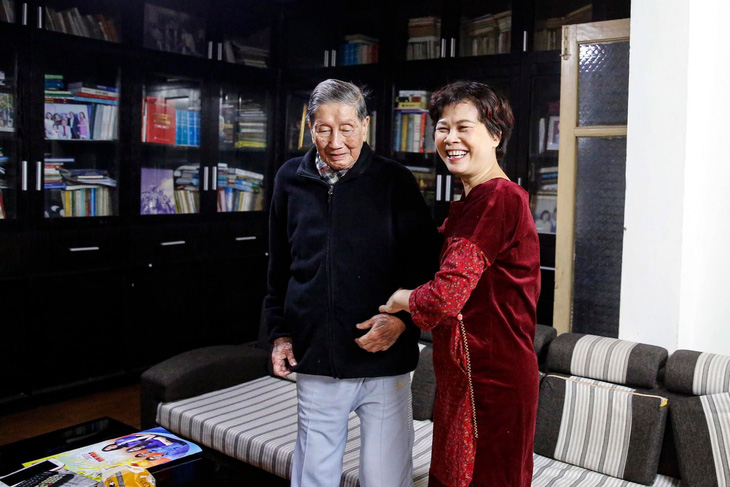
Musician Pham Tuyen and daughter Pham Hong Tuyen - Photo: GĐCC
More complex in the digital age
Currently, musician Pham Tuyen's family still does not know who is the owner of the derivative version of "The Little Elephant in Ban Don" .
Talking to Tuoi Tre Online , Ms. Pham Hong Tuyen - the musician's daughter - added that in the past, she and her friends of the same age also often made up songs to sing.
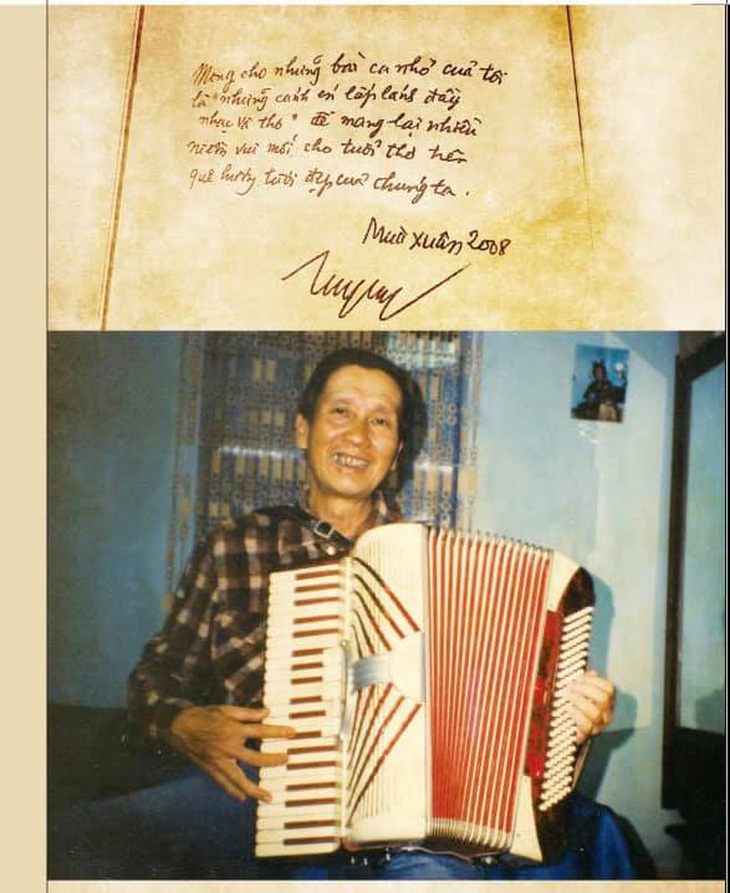
Musician Pham Tuyen - Photo: GĐCC
At that time, social media, YouTube or TikTok were not as popular as they are now. Singing was mainly for fun in a small group of friends and there was no recording and posting it online like today.
Therefore, the popularity of those parodies is not widespread.
"However, the story becomes more complicated and affects the original song's author more in the current context, when social networks develop. Identifying real - fake, original - derivative... is very difficult," she said.
Here, we are not talking about professional singers who make derivatives of original songs, but what about those who sing for fun, not for commercial purposes?
Currently, this is a large group of people who make music, create derivative songs and then spread them on social networks.
According to music critic Nguyen Quang Long, musicians "probably aren't too strict about their original songs being parodied."
"Even if we want to prevent it completely, it is difficult. In some ways, it is also a manifestation of folk culture," Mr. Long commented. He explained that Vietnamese people have a sense of humor, are witty, like to compare, create, and adapt...
However, according to Mr. Long, the Internet environment creates opportunities for derivative and parody music to spread, requiring more civilized behavior.
If it's for fun, it shouldn't be banned. The creator should have a note or introduction that this is a derivative version, not the original.
If the creator or derivative work has a business purpose or is motivated to make singing a career, exploiting it in official programs, then the copyright must be very clear.
Previously, answering Tuoi Tre Online , the musician's daughter also said that musician Pham Tuyen strongly supported his research and creativity to renew his works.
However, that does not mean arbitrarily using or changing the song without asking the author's permission or changing it in a way that loses the spirit of the author's original song.
Source



![[Photo] Prime Minister Pham Minh Chinh receives Swedish Minister of International Development Cooperation and Foreign Trade](https://vphoto.vietnam.vn/thumb/1200x675/vietnam/resource/IMAGE/2025/5/12/ae50d0bb57584fd1bbe1cd77d9ad6d97)
![[Photo] Prime Minister Pham Minh Chinh works with the Standing Committee of Thai Binh Provincial Party Committee](https://vphoto.vietnam.vn/thumb/1200x675/vietnam/resource/IMAGE/2025/5/12/f514ab990c544e05a446f77bba59c7d1)
![[Photo] Prime Minister Pham Minh Chinh starts construction of vital highway through Thai Binh and Nam Dinh](https://vphoto.vietnam.vn/thumb/1200x675/vietnam/resource/IMAGE/2025/5/12/52d98584ccea4c8dbf7c7f7484433af5)










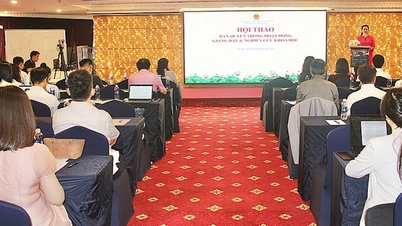





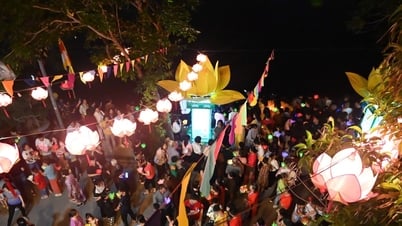







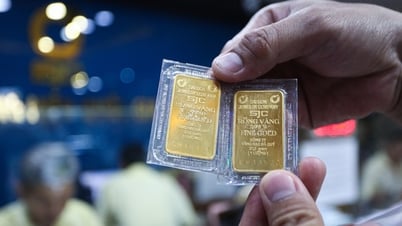


















































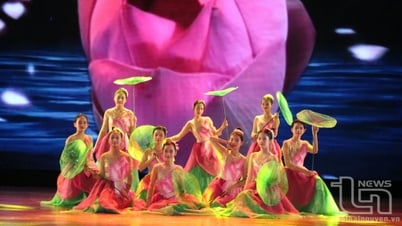



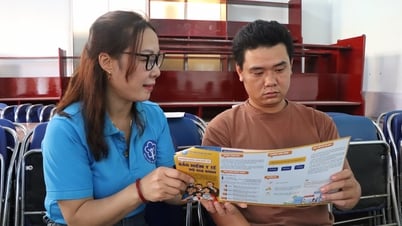












Comment (0)